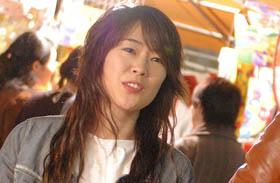Film looks at depression through a different lens.
Aimless, extremely slow-paced and stationary are just some of the adjectives and characteristics one could use to describe this newest offering in Japanese cinema. Based on a novel by Akiko Itoyama, Ryuichi Hiroki’s It’s Only Talk actually keeps the emotional reactions to a minimum – the focal point here being that strained souls are to be explored in smaller doses and more nuanced tribulations.
Encircling the private and sometimes public world of a female protagonist named Honma solidly played by Shunsuke Matsuoka, Hiroki has no rush in unraveling all the layers of this wanderer. Unemployment and depression means that she lives life a little differently from the average set. Her kinkiness, and her frequentations with a handful of gentlemen is a survival tactic – but what keeps her grounded are these moments where basic living, walking, talking pictures and simply existing helps combat against the coma-inducing medication for her depression. It’s when she meets her match in another drifter in her cousin that her world experiences a drastic shift.
Most notable is the film’s deliberate pacing matched with a moving camera that knows when to stop and place itself for a moment of reflection. In a country which packs millions of people it’s easy to get lost among the shuffle – but here the protagonist is isolated from such a pressure and when she lives out the burden viewers will experience that same moment with a profound lock on the look of the scene. While it may be difficult to be totally engrossed by the film, somewhere in its simplified quietude viewers will gain a full sense of what it is to live life during its simpler moments.
Sundance 2006.
